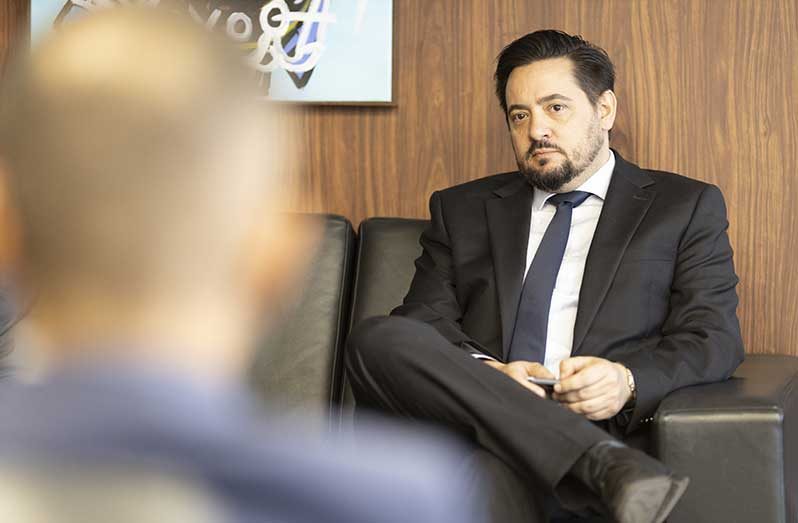-country among Caribbean Nations to receive support from OAS initiatives
PRIORITISING climate emergency and environmental protection, the Organization of American States (OAS) is concentrating on major climate change projects in the Caribbean, with a particular focus on Guyana, Barbados, and Jamaica.
During a recent exclusive interview with the Guyana Chronicle, Javier Palummo, the Special Rapporteur on Economic, Social, and Environmental Rights under the Inter-American Commission on Human Rights of the OAS, explained that while the OAS works on various aspects related to climate change, the Special Rapporteurship on Economic, Social, Cultural, and Environmental Rights (REDESCA) has taken the lead.
Ultimately, the aim is to provide support to these developing states with a focus on the intersection of climate change and human rights.
“Regarding Guyana specifically, REDESCA has highlighted the country’s efforts in climate adaptation and environmental protection. Guyana ratified the Escazú Agreement, becoming the first country to do so, and has made significant strides with its Low Carbon Development Strategy [LCDS] 2030, which prioritises ecosystem services and clean energy investments,” Mr. Palummo said.
Through REDESCA, strategic initiatives have been deployed as part of a 2024-2026 work plan that prioritises climate emergency and environmental protection.
Mr. Palummo, however, noted that although Guyana has made significant strides with its LCDS to address the increasing threats of climate change, the country, and peoples are still extremely vulnerable.
“The country also faces significant climate-related challenges, including vulnerability to flooding and sea-level rise, as well as concerns over indigenous land rights due to the expansion of extractive industries, among other aspects documented in the Guyana chapter of our Annual Report.”
Guyana’s LCDS was birthed to give cognisance to the importance of tropical forests in the equation of climate change.
According to the country’s President, Dr. Irfaan Ali, the LCDS has evolved from a vision to a global policy that has set the benchmark for driving action.
The LCDS was first launched in 2009 intending to map out the path of a new growth trajectory in a non-polluting way. The first draft of the policy had set out an initial view on how this might be done, and outlined insights on how to stimulate the creation of a low-deforestation, low-carbon, climate-resilient economy in Guyana.
REDESCA
The Inter-American Commission on Human Rights (IACHR) established the Office of the Special Rapporteur on Economic, Social, Cultural, and Environmental Rights to spearhead the Commission’s efforts in this domain and to enhance the promotion and protection of these rights throughout the Americas.
The Special Rapporteur further pointed out that one significant initiative is the ongoing process to issue an Advisory Opinion on state obligations in the context of the climate emergency, which was discussed in historic hearings by the Inter-American Court of Human Rights with the participation of REDESCA.
“This process is expected to produce crucial legal standards on how states should address climate change while ensuring human rights, particularly focusing on the protection of vulnerable populations most impacted by the climate crisis,” Mr. Palummo explained.




.jpg)









